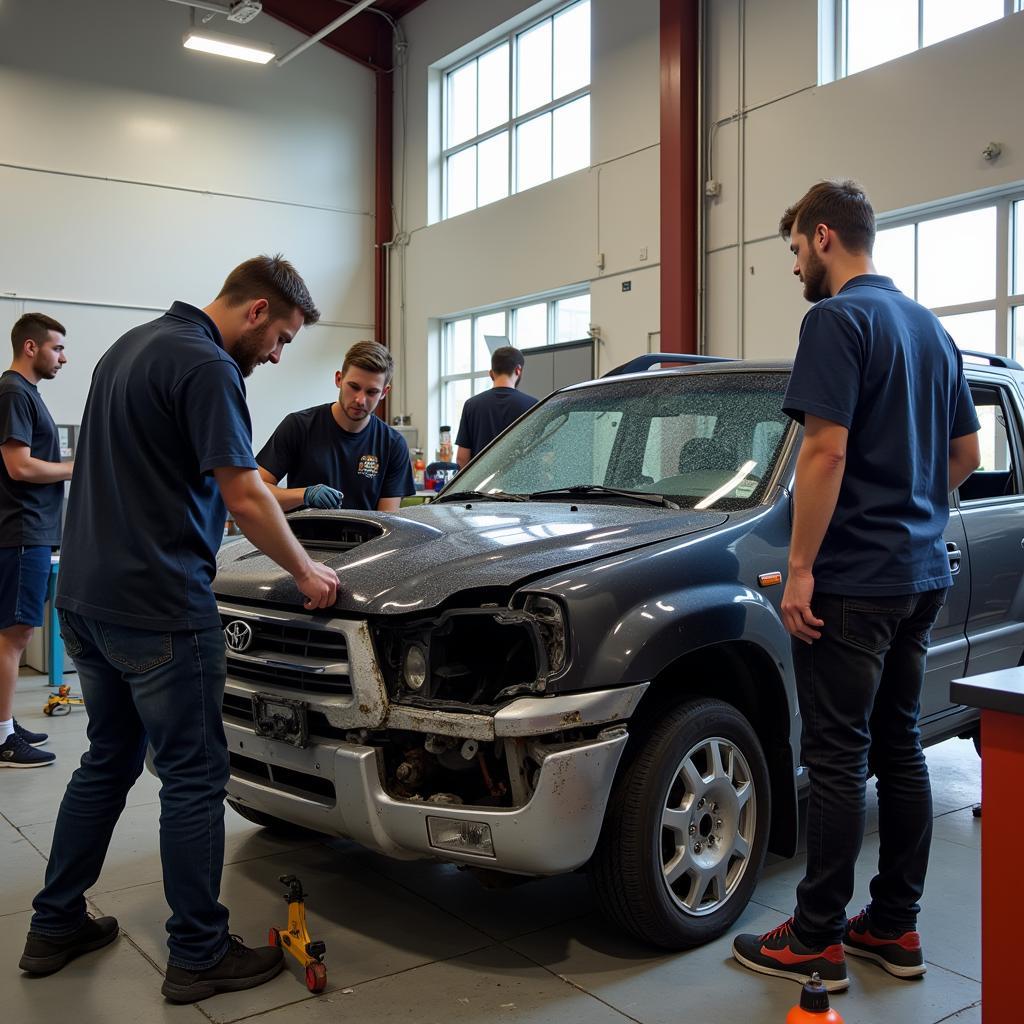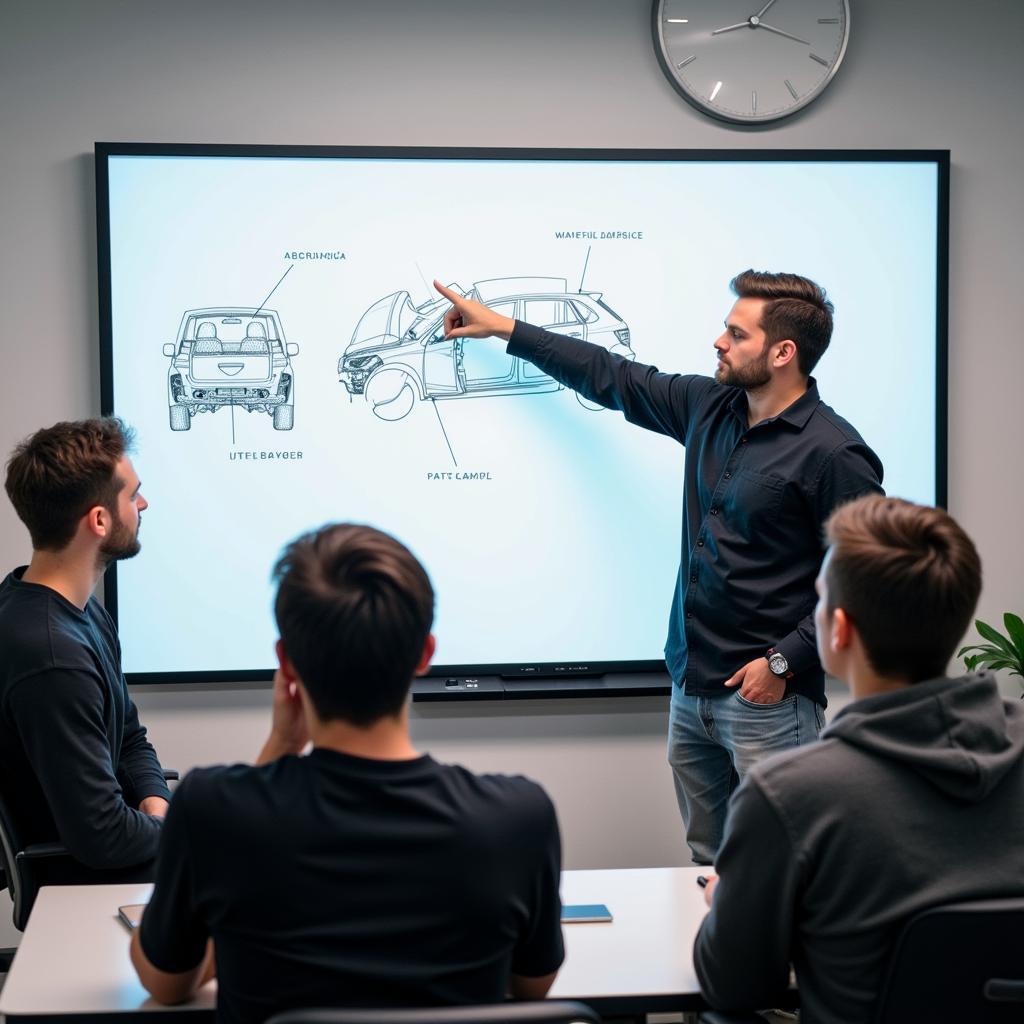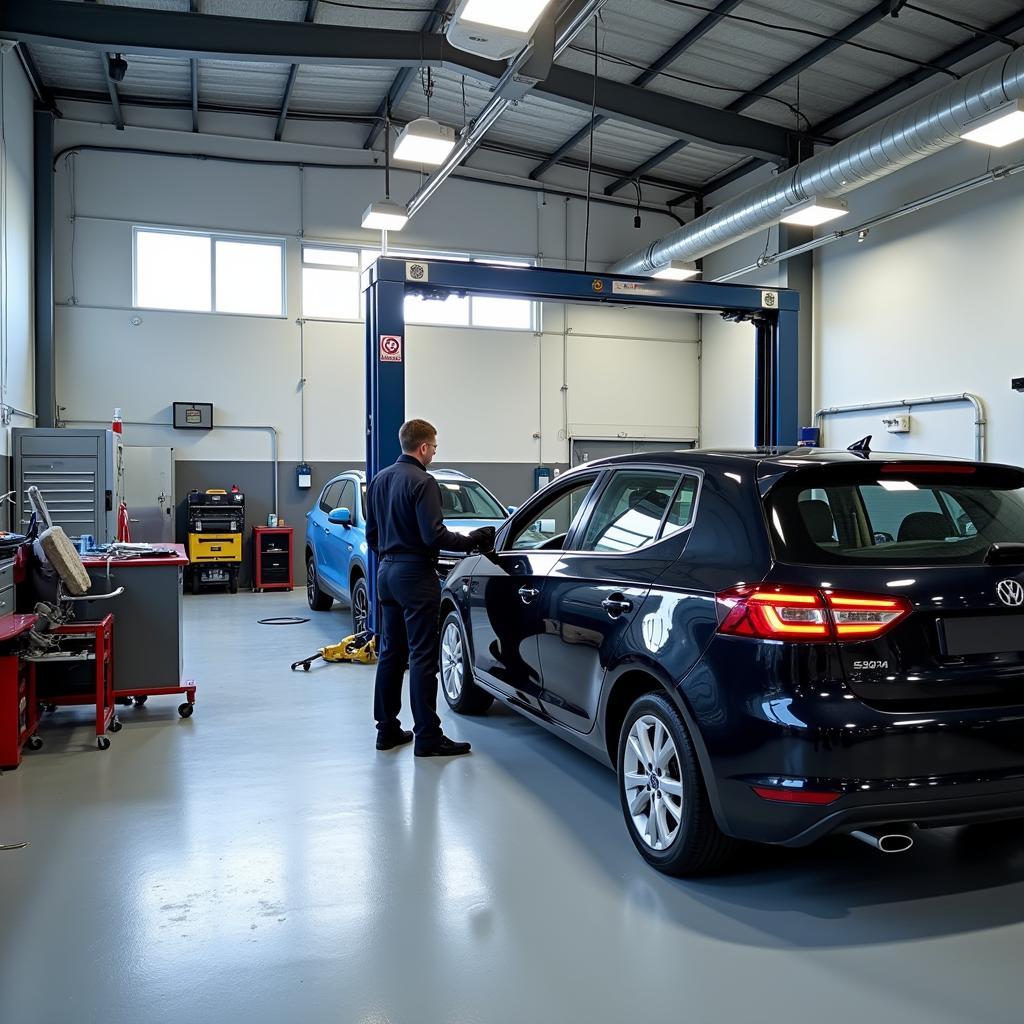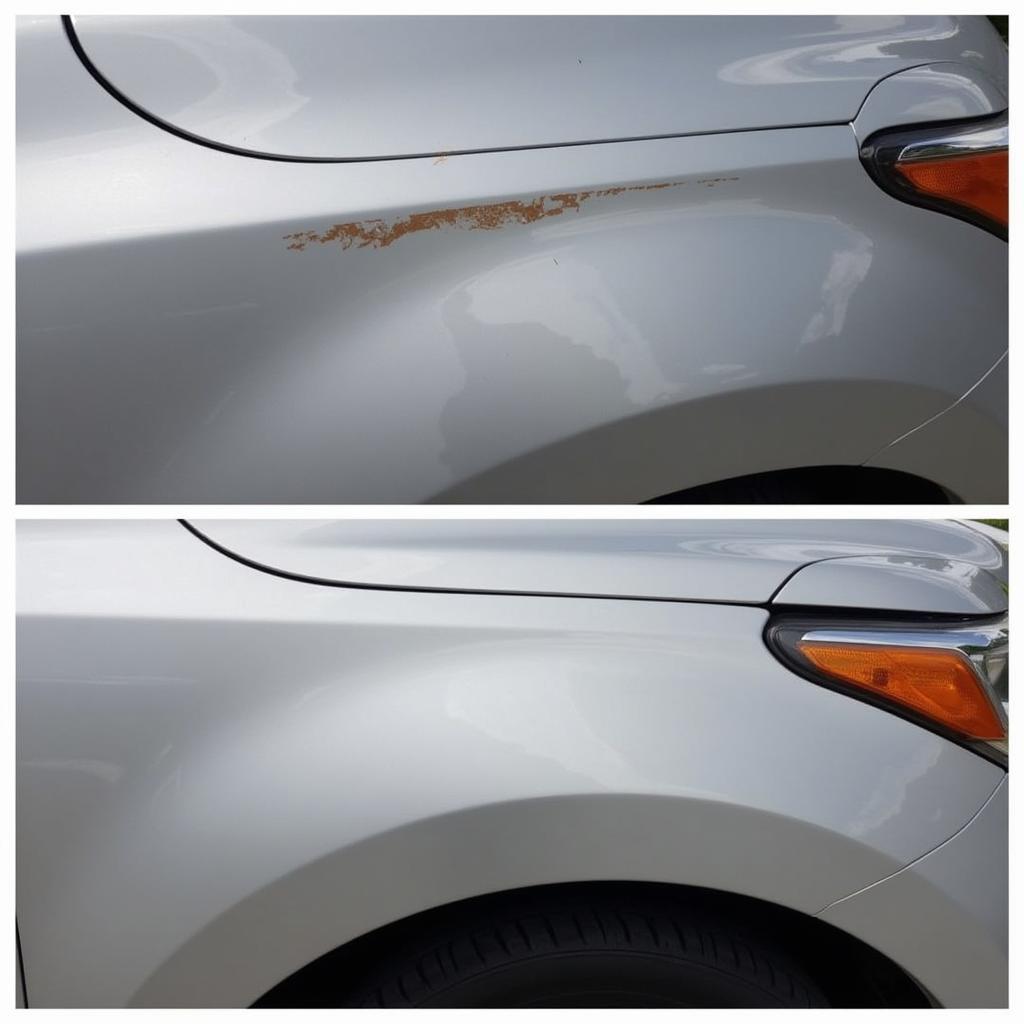
Students Practicing Car Body Repair Techniques at University
Car Body Repair University programs offer a specialized education focusing on collision repair and refinishing. These programs provide aspiring technicians with the skills and knowledge necessary to excel in this demanding yet rewarding field. Whether you’re interested in dent repair, painting, or frame straightening, understanding the educational pathways available can help launch your career.
Exploring Car Body Repair University Programs
 Students Practicing Car Body Repair Techniques at University
Students Practicing Car Body Repair Techniques at University
Car body repair, also known as collision repair, is a skilled trade requiring both technical expertise and artistic finesse. Choosing the right car body repair university is crucial for gaining a comprehensive understanding of the field. These programs typically combine classroom instruction with extensive hands-on training, providing students with the opportunity to apply theoretical knowledge in a practical setting. Curriculum often includes courses in welding, metal fabrication, painting techniques, damage assessment, and estimating.
Choosing the Right Program for You
Several factors should be considered when selecting a car body repair university. Program accreditation ensures that the institution meets industry standards and provides a quality education. Location, program length, and cost are also important practical considerations. Look for programs that offer specialized training in areas that align with your career goals, such as advanced composites repair or custom paint jobs. Furthermore, consider programs with strong industry partnerships, as these connections can provide valuable networking opportunities and potential job placements.
What to Expect in a Car Body Repair University Curriculum
 Instructor Explaining Damage Assessment Techniques
Instructor Explaining Damage Assessment Techniques
A typical car body repair university curriculum covers a wide range of topics, from basic repair techniques to advanced diagnostics. Students learn how to identify different types of damage, assess the extent of repairs needed, and develop a repair plan. Hands-on training allows students to practice these skills on actual vehicles, under the guidance of experienced instructors. The curriculum often incorporates the latest technologies and industry best practices, ensuring graduates are well-prepared for the evolving automotive landscape. For example, understanding Advanced Driver-Assistance Systems (ADAS) calibration is increasingly crucial in modern car body repair.
Core Curriculum Components
- Metalworking and Welding: Learn the fundamentals of metal shaping, welding techniques, and structural repair.
- Painting and Refinishing: Master the art of color matching, surface preparation, and applying various paint finishes.
- Damage Assessment and Estimating: Develop the skills to accurately assess vehicle damage and create detailed repair estimates.
- Frame Straightening: Gain expertise in using specialized equipment to restore a vehicle’s frame to its original specifications.
- Plastics and Composites Repair: Learn how to repair and replace plastic and composite components, increasingly common in modern vehicles.
Career Paths After Car Body Repair University
Graduates of car body repair university programs have a variety of career options within the automotive industry. Many find employment in collision repair shops, dealerships, or insurance companies. Some graduates choose to specialize in specific areas, such as custom painting or restoration. With experience and further training, graduates can advance to managerial roles or even open their own repair businesses. The demand for skilled car body repair technicians remains high, making it a stable and rewarding career choice.
“The automotive industry is constantly evolving, and a solid education from a car body repair university gives you the foundation you need to adapt and succeed,” says John Smith, Lead Collision Repair Technician at ABC Auto Body.
Conclusion
Car body repair university offers a pathway to a rewarding career in the automotive industry. These programs equip students with the skills and knowledge to excel in a field that demands both technical expertise and artistic talent. By choosing the right program and dedicating yourself to your studies, you can launch a successful and fulfilling career in car body repair.
FAQ
- What is the average duration of a car body repair university program? Programs can range from several months to two years, depending on the level of specialization.
- What are the job prospects for car body repair technicians? The demand for skilled technicians is consistently high, offering good job security.
- Do I need any prior experience to enroll in a car body repair university program? Most programs do not require prior experience, but a passion for cars is definitely a plus!
- What certifications can I obtain after completing a car body repair university program? Several industry certifications are available, such as ASE and I-CAR certifications, which enhance your credentials and job prospects.
- What is the average salary for a car body repair technician? Salaries vary based on experience and location, but the median salary is competitive.
- What are some of the essential skills for a car body repair technician? Attention to detail, problem-solving skills, and manual dexterity are crucial.
- How can I find reputable car body repair university programs near me? Research online, consult with industry professionals, and attend career fairs to explore your options.
Need help with Car Repair? Contact us via WhatsApp: +1(641)206-8880 or Email: [email protected]. Our 24/7 customer support team is ready to assist you.



